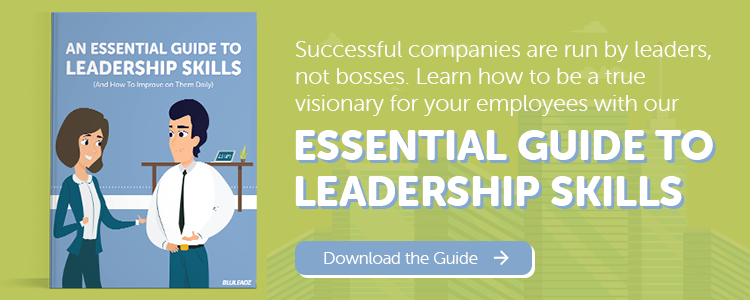If you are beyond the basic startup phase, then finding a software to help manage and automate aspects of your business is an integral part of your growth process.
Some basic signs indicate your business might be ready for enterprise resource planning (ERP) software, such as having a hard time tracking inventory and reconciling financials at month's end. However, each company is highly unique, so only you know for sure when it's time for a new organizational system.
The use of ERP software reached $71.41 billion in 2023. The growth shows trends toward more automation in all types of businesses and owners recognize the importance of utilizing ERPs for a variety of tasks.
Here are six questions for determining if ERP software is right for your business or not.
1. Are You Spending Significant Time on Financials?
When you reach the end of the month, does the task of figuring out who has been paid, who has paid you, and the employee payroll feel completely overwhelming?
If you're spending days upon days on financials, it's probably time to invest in an ERP and automate some of your invoicing and payroll tasks.
Freeing up your employees' time for more creative endeavors can save your company money in the long run and more than pay for the investment in the software.
If you are still not breaking a profit, though, investing in expensive software doesn't make sense. Hold off on installing ERP software until you are clearly in the black.
2. Is Your Data Collection Overwhelming?
Once you've been in business for a while, the amount of data can quickly become astronomical. You have processes and procedures for every aspect of your company, and detailed information on customers as well as vendors.
Storing the data may not be that big of a deal, but easily accessing and sorting through it becomes an issue. If so, it's time to invest in ERP software so you can run fast reports on just the information you need.
Detailed reporting helps your sales and marketing departments as they come up with new campaigns to reach current and potential customers.
If you can still easily run a summary report in Excel and get the information you need, you can likely hold off on investing in ERP software. If finding the data you need is a nightmare, it's time to make a change.
3. Does Your Business Run Efficiently?
If you notice a lot of errors in fulfilling customer orders or employees spending too much time on tasks that could be automated, it's likely time to invest in ERP software.
One of the big advantages of adding enterprise resource planning is creating a more streamlined company across multiple departments.
The software allows you to set who can and can't see various information. It also gives you the ability to share info between departments rather than having multiple data sources.
If your business already runs at maximum efficiency, you may not yet be large enough or have enough clients to worry about implementing changes. Only you know for certain if there are things that could be easily automated to save time.
4. Do You Have Field Techs?
Do you have salespeople or technicians out in the field? An ERP system updates data in real-time so everyone is on the same page.
For example, if two salespeople take big orders, they won't overlap one another and tell a customer something can be delivered the next day when it is no longer in inventory.
Having access to instant data avoids misunderstandings and unhappy buyers. A cloud-based system is also beneficial if you have remote workers who may need to access information from anywhere in the world.
If you don't have remote workers and your salespeople only work off an internal database, you may not yet need an ERP. Even for smaller companies, the addition of automation helps centralize operations.
5. Are Your Administrative Costs High?
An ERP system reduces administrative costs as much as 22 percent. If your administrative costs are out of control, then an ERP system may help reduce those expenses.
That way, your company could put that money to better use on things such as marketing or developing customer relationships. Administrative costs vary widely depending upon the type of work your business is in, but set a reasonable budget and stick to it.
If your costs are still within your budget and don't seem particularly high, you may not yet need an ERP for administrative reasons. However, there are many other reasons to install ERP software, so weigh all your options.
6. Did You Find Numerous Duplicate Entries?
Human error almost always comes into play when database errors occur. If you're finding duplicate entries and mistakes, then it might be time to automate some of your data entry through a new ERP system.
Because ERPs typically tie into inventory control and even ordering, duplicate sales and orders become a thing of the past.
However, installing an ERP system isn't inexpensive. You can easily run over budget, especially if you seek software with multiple features, cloud-based hosting, and other benefits.
Make sure you can afford the software and any ongoing costs before switching to an ERP system.
Good Return on Investment
Only you can determine when it's time to purchase ERP software for your company.
However, keep in mind that installing an automated software system can help some businesses see as much as a 264 percent return on investment.
At a minimum, you'll have a system that runs more efficiently and lets you focus on things other than paperwork.


Lexie Lu
Lexie Lu is a freelance graphic designer and blogger. She keeps up with the latest design news and always has some coffee in close proximity. She writes on Design Roast and can be followed on Twitter @lexieludesigner.